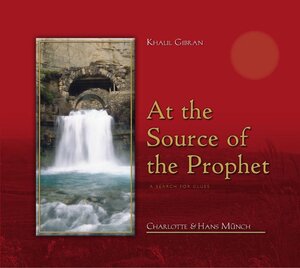
×
![Buchcover ISBN 9783942368025]()
"Gibran says: 'If Lebanon had not been my country, I would have chosen it for my country.'This wonderful book, that we have long awaited, reveals the natural beauty, the spiritual and artistic faceof Lebanon, embraced by Khalil Gibran himself." Gibran National Committee, LebanonThe PresidentAntoine Tawk
Khalil Gibran At the Source of the Prophet
A Search for Clues
von Charlotte Münch, aus dem Deutschen übersetzt von Brian DorseyAuszug
Khalil Gibran has not really left this world. His main work “The Prophet” is omnipresent and frequently quoted whenever the subject turns to love, marriage or children. Towards the end of his life Gibran said of himself, “I came into the world to write a book, just one small book.” And, in fact, eighty years after Gibran’s death his book, “The Prophet”, still sells annually a million times over around the world. Several of his other works are also world famous – even if they were not very highly rated by the author himself. They include “The Madman”, “The Wanderer”, “Sand and Foam”, “Broken Wings”, “A Tear and a Smile”, “Jesus the Son of Man” and “Rebellious Spirits”.Famous titles, oft-heard quotations – and yet only very few people can name the man who wrote them, let alone where he came from or know anything about the story of his life. Something else which is little known is that Gibran not only operated as a poet and philosopher, but also distinguished himself as a congenial and sympathetic painter and graphic artist.
Yet Gibran was far more than just an outstanding writer and artist. Throughout his life a rebel and never quite fitting in, he outspokenly denounced intolerance, injustice and oppression. He vehemently argued for women’s rights and tirelessly campaigned for understanding and rapprochement between the various religions. Freedom of thought as well as political and social freedom meant for him the very foundation of life itself. Without doubt Khalil Gibran, characterised by a deep humanism, was one of the great spiritual teachers on our earth.
This is revealed from his works.
Yet Hans and I were increasingly interested in learning about the real man behind the poet and painter. How did that private person who was Khalil Gibran think and feel? Were all his beautiful wordings only a façade or did Gibran genuinely live by his principles? And how did he fare in his short existence?
What we found in both Gibran’s personal correspondence and in notes from some of his friends moved us deeply.
Even though showered with praise and fame from early on, he was never destined to have a really happy and easy life. In his youth he was dealt some severe and devastating blows, illness and pain were his constant companions. Although having several affairs and feeling genuine love, the fulfilment of a true partnership was denied him and his personal writings give voice to the depth of his loneliness.
Yet what distressed Khalil Gibran most, and was to do so up to his early death, was his boundless nostalgia for his beloved homeland. This book sets out to show our desire to bring not only Gibran as a great poet and artist closer to you the reader but also his greatest love – the Lebanon.
Both deserve it.
Charlotte Münch


